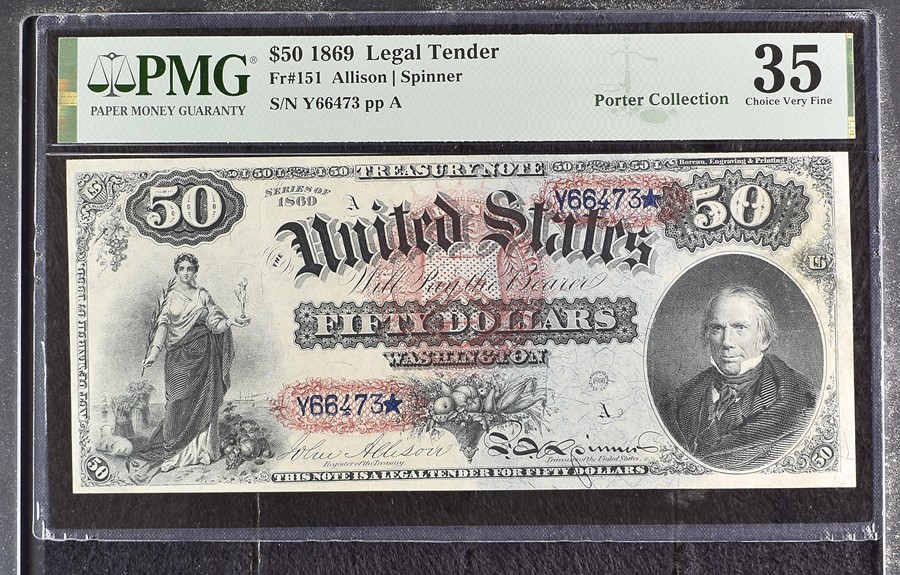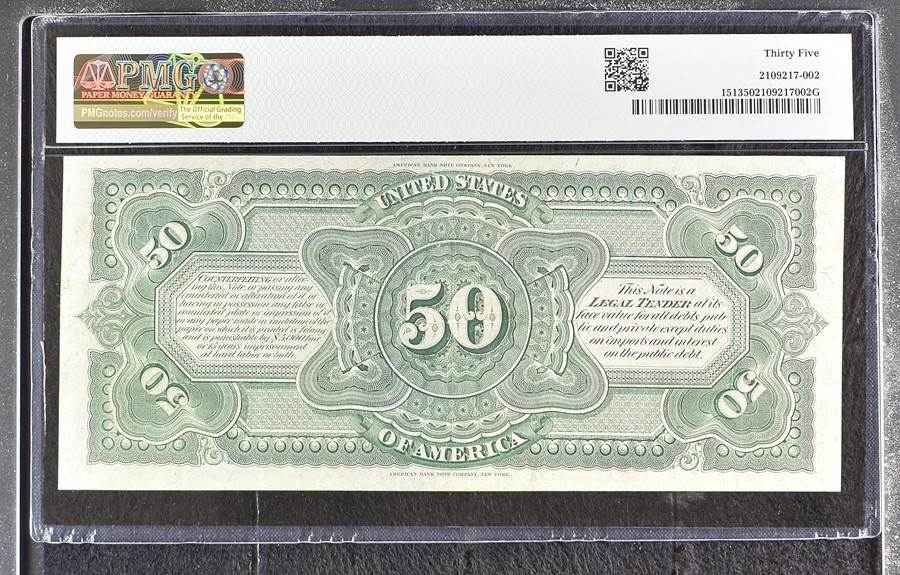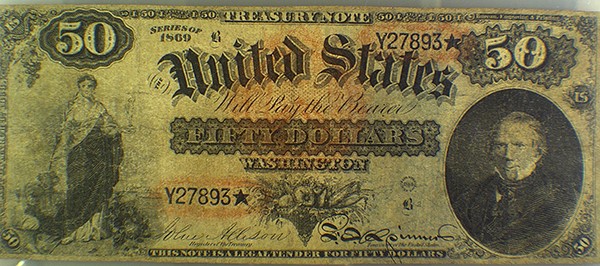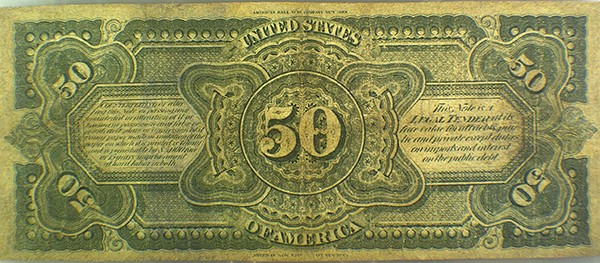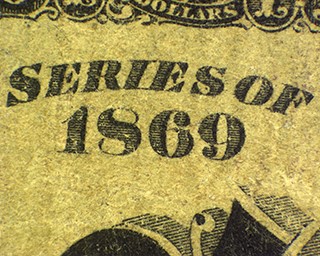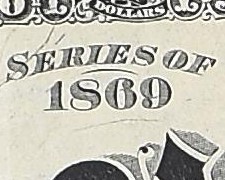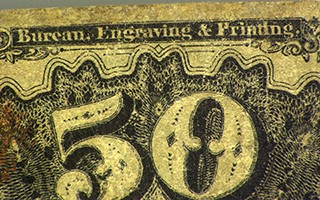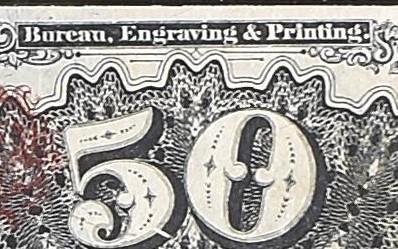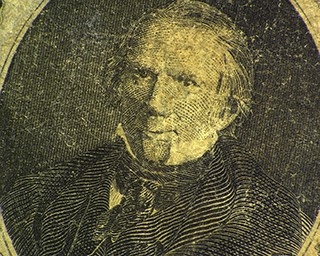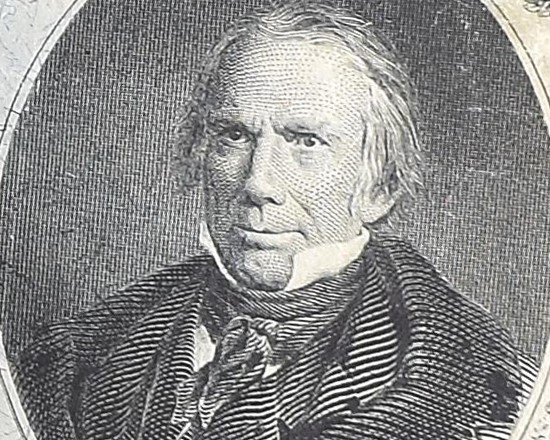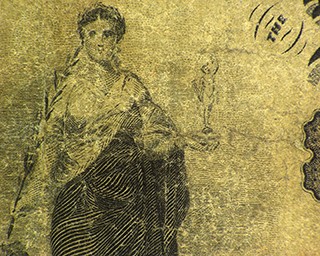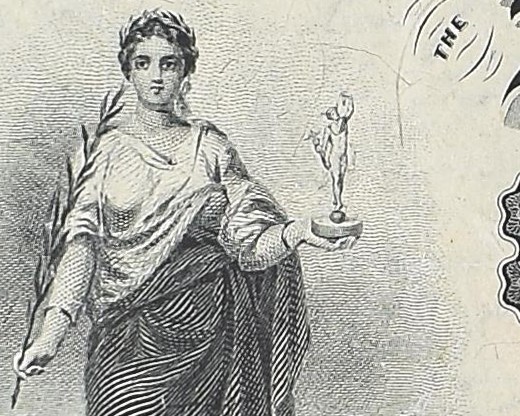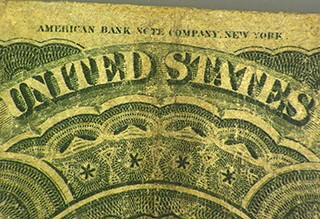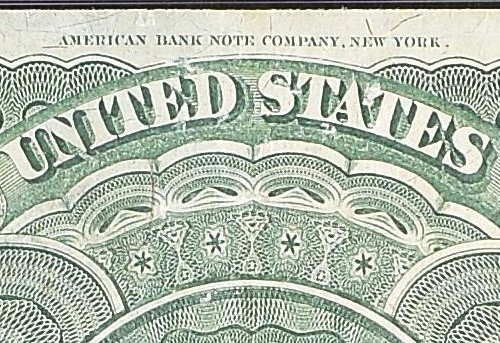PMG Counterfeit Detection: 1869 $50 Legal Tender
Posted on 8/19/2025
Some of the most beautiful US paper money issues are the “Rainbow Notes,” which get their nickname from the colorful design on their fronts. These 1869 Series Legal Tender Notes were issued in nine denominations: $1, $2, $5, $10, $20, $50, $100, $500 and $1,000. In addition to eye appeal, they have significant numismatic value.
The two highest denominations are represented by a single example each that is available to collectors, and each realized $1.44 million at a Stack’s Bowers Galleries auction in 2019. Examples of the smaller denominations in all but the lowest grades generally realize more than $1,000 at auction. In between is the $50 Legal Tender, of which fewer than 100 examples are available to collectors today. This example below is graded PMG 35 Choice Very Fine and realized $117,000 in a 2023 Heritage Auctions sale.
PMG recently received a purported example of the 1869 $50 Legal Tender, which is often identified by its catalog number of Friedberg 151. It shows an allegorical woman holding Mercury at left while Henry Clay, who served as US House Speaker and Secretary of State in the early 19th century, is positioned at right.
Unfortunately for its submitter, this note is a counterfeit. Because it circulated at the same time as genuine examples, it is called a “contemporary counterfeit.” One red flag is the missing flourish over the year in “SERIES OF 1869” in the top-left section of the front. Also note the differences in the space within the ‘O’ in OF.
Details elsewhere on the counterfeit are also inconsistent with what is expected. In the top-right section of the front, the text of “Bureau, Engraving and Printing” has some issues with its kerning, the space between letters. Note the additional space between the ‘P’ and ‘r’ as well as the final ‘n’ and ‘g’ in the word Printing.
Upon close examination, the details in the counterfeit’s vignettes of the woman and Clay are also off when compared to the genuine example, which is particularly noticeable around the eyes.
On the back of the counterfeit note, there are some subtle flaws in the word UNITED STATES, including the modest size of the “tie” at the right end of the middle horizontal stroke of each ‘E’.
However, this counterfeit was quite sophisticated for its time, and it appears to have spent quite a bit of time in commerce. In fact, extensive restoration work was performed on this note, presumably by someone who believed it to be genuine and, therefore, of significant collector value. This could explain some of the differences in the design on the counterfeit, and it is an important aspect to consider when attempting to authenticate a note like this one.
Professional certification by experienced paper money experts is essential for a collectible as valuable as the 1869 $50 Legal Tender. Remember, PMG backs its determinations of authenticity and grade with the PMG Guarantee.
Related Link: View more PMG Counterfeit Detection columns
